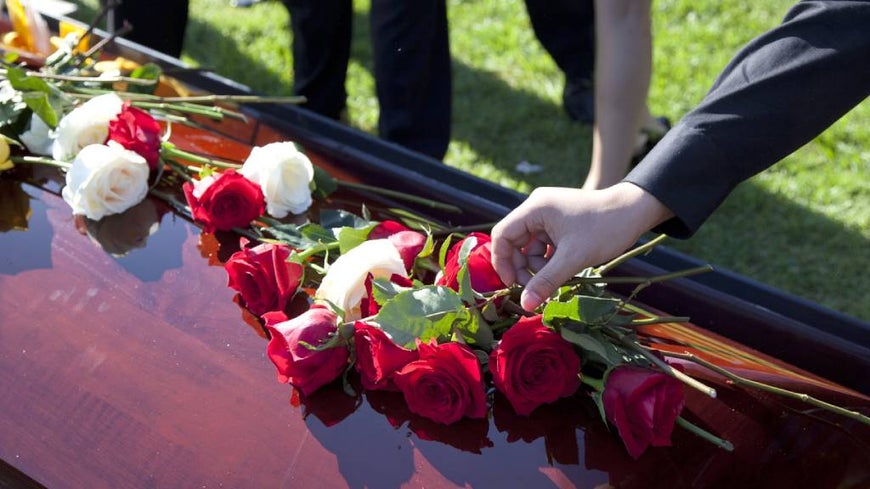Funerals are emotional, here are tips on what to expect

Written by Claire Isaac for Australian Seniors.
There are some universal truths about funerals. They’re sad events, of course, and even when we’re asked to “celebrate” a life, they still come with feelings of grief. They’re also necessary – a chance to say goodbye, to pay respects and to comfort those left behind. But they can be confusing and confronting – especially if the person you’re grieving is from a different religion or ethnic group to yourself.
“As much as we talk about death, dying and funerals more openly now than ever before, it is still daunting to think about attending one, particularly if it’s in an unfamiliar environment,” says funeral director Kelly Scott, senior vice president of the Australian Funeral Directors Association.
Cultural awareness
There are so many different religious and cultural traditions, so it’s about attending with an open heart and mind and showing respect to these rituals, Kelly explains.
“Even when a service is in a language other than English you can often ‘follow the cues’ with standing, sitting and kneeling at the appropriate places. A prayer booklet may also be a guide as to when to respond, if you feel like you would like to participate.”
If you have to give a eulogy, there are some guidelines available to get you started, but there are no hard and fast rules.
Do I still wear black?
“Recently there has been a trend for guests to be asked to wear more colourful outfits as a gesture of celebration. It’s really up to the hosts to decide,” says Nat Thomas, head of growth and marketing at end-of-life services website Gathered Here.
“While dress codes today may not insist upon wearing black, however, it’s important to be thoughtfully and respectfully dressed,” he says. “If unsure it’s best to err on the side of caution and avoid anything that could be misinterpreted as not appropriate.” Remember, more people are turning to unusual ways to say goodbye, so be creative within reason.
Post-funeral etiquette
What about that post-service cuppa? Where funeral attendance has no restrictions, you’re often invited to share time with the family afterwards, via a written invitation on the order of service booklet. Are we expected to go? “In my experience families mean for everyone to come,” says Kelly. “If they would prefer something quiet or more private, this invitation will not be extended to the entire gathering.”
“Many mourners will feel isolated and alone following the death of a loved one,” says Nat. “They may benefit from having a simple cup of tea with you to provide comfort and support. But it’s also important to be considerate at this time and not overstay your welcome.”
What to say at a funeral
Which brings us to what we should say. “Sharing a favourite memory is a lovely way to celebrate the loved one in a meaningful way and can help the grieving family,” says Nat. While Kelly suggests: “If you are not sure what to say, you don’t have to say anything. Sometimes a big hug and a simple, ‘I’m here for you’ is all that is needed.”
Indeed the family, by the time of the funeral day, are usually exhausted, both from grief and through organising the event.
5 funeral do’s and don’ts
By Kelly Scott, funeral director.
- Do thank the family/loved ones after the service. In a time where some people don’t even have a funeral, appreciate the opportunity to share in something so important.
- Don’t make it about you. Try not to say things like, “I know how you feel”. You may have lost someone significant, but relationships are entirely unique, so you can never know how another person feels in grief.
- Do turn off your mobile before the service starts. Mobile phone noise is an absolute no-no.
- Don’t drink too much. Alcohol can often fuel emotions, good and bad, and you don’t want to do anything that takes away the importance of the day of remembrance.
- Do leave before the family. They will often feel they have to be polite and wait until everyone has left, but will be exhausted and emotionally drained by the end of this day.
22 Feb 2022